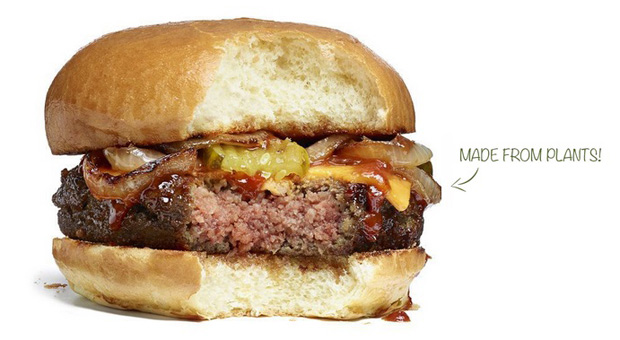'Plant blood' the key to replicating the taste of meat, says scientist
A US company says it has created the 'ultimate' veggie burger – one that looks, smells and tastes like meat

A free daily email with the biggest news stories of the day – and the best features from TheWeek.com
You are now subscribed
Your newsletter sign-up was successful
A start-up company in the US believes it has discovered the secret to replicating the taste of meat in vegetarian burgers, using an ingredient known as "plant blood".
The crucial component of the burgers developed by Impossible Foods is also called heme: an iron compound found in haemoglobin in the blood, but also in plant matter.
The company is backed by Bill Gates, among other influential funders, and was set up by Stanford University biologist and physician Patrick Brown. It's goal is to give customers the taste of meat without the negative health and environmental impacts.
The Week
Escape your echo chamber. Get the facts behind the news, plus analysis from multiple perspectives.

Sign up for The Week's Free Newsletters
From our morning news briefing to a weekly Good News Newsletter, get the best of The Week delivered directly to your inbox.
From our morning news briefing to a weekly Good News Newsletter, get the best of The Week delivered directly to your inbox.
"Livestock is an antiquated technology," Brown told the Wall Street Journal, citing the high environmental cost of animal farming.
The burger, formed in a laboratory, contains no cholesterol and is designed to be 80 per cent lean and 20 per cent fat.
But it is not only taste the scientists needed to replicate, they must also create the right texture. "Impossible [Foods] has a giant marketing challenge ahead to woo meat lover," writes Evelyn Rusli of the Journal after sampling the burger, adding that "tricking carnivores isn’t easy".
The burger may also be unattractive to people who have already given up meat. Depending on their reasons for leading a vegetarian lifestyle, a "meat-like" taste may not appeal to some.
A free daily email with the biggest news stories of the day – and the best features from TheWeek.com
When raw, the burger leaves a residue of "blood" behind, "yet another sign that this isn’t your typical veggie burger," writes Rusli.
Despite the challentges, she believes the scientists have managed to create the right texture, but describes the taste as "arguably several rungs below a gourmet burger, and more akin to a turkey patty".
Each burger costs £20 to produce, but Brown says he expects to bring that figure down once the company goes into large scale production, which could be as early as next year. He has high ambitions for the expansion of his company. "There are limits to what a cow can be — a cow can only be a cow," he says. "We can make anything."